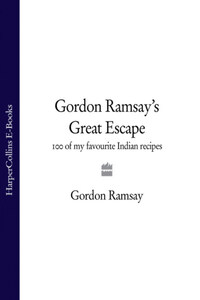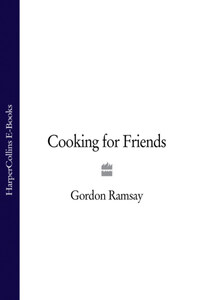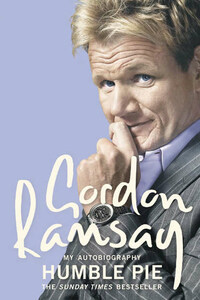In my hand, I’ve got a piece of paper. It’s Mum’s handwriting, and it’s a very long list of all the places we lived until I left home. It’s funny how few of them I can remember. In some cases, that’s because we were hardly there for more than five minutes. But in others, it’s because, as a boy, I was often afraid and ashamed, and always poor. And you don’t dwell on the details of a house if you connect it with being afraid, or ashamed, or poor.
I don’t think people grasp the real me when they see me on television. I’ve got the wonderful family, the big house, the flash car. I run several of the world’s best restaurants. I’m running round, cursing and swearing, telling people what to do. They probably think: that flash bastard. But my life, like most people’s, is about hard work. It’s about success. Beyond that, though, something else is at play. I’m as driven as any man you’ll ever meet. When I think about myself, I still see a little boy who is desperate to escape, and keen to please. I just keep going, moving as far away as possible from where I began. Work is who I am, who I want to be. I sometimes think that if I were to stop working, I’d stop existing.
This, then, is the story of that journey – so far. I’m just forty-one, and it seems, even to me, such an amazing and long journey in such a short time.
Will I ever get there? You tell me.
The first thing I can remember? The Barras in Glasgow. It’s a market – the roughest, most weird place, full of second-hand shit. In a sense, I had a Barras kind of a childhood.
Until I was six months old, we lived in Bridge of Weir, a comfortable, leafy place just outside Glasgow. Dad, who’d swum for Scotland at the age of fifteen, was a swimming baths manager there. After that, we moved to his home town, Port Glasgow, where he was to manage another pool. Everything would have been fine had he been able to keep his mouth shut, but Dad was a hard-drinking womanizer and competitive, as much with his children as with anyone else. And he was gobby, very gobby.
Mum is softer, more innocent, though tough underneath. She’s had to be. I was named after my father, but I look more like her – the fair hair, the squashy face. I have her strength, too – the ability to keep going, no matter what life throws at me.
Mum can’t remember her mother at all – my grandmother died when she was just twenty-six, and Mum wound up in a children’s home.
At sixteen, she began training as a nurse. One Monday night, she got a pass so that she could go dancing with a girlfriend of hers. A man asked Mum to dance, and that was my father. He played in the band, and she thought he was a superstar.
When she turned seventeen, they married – on 31 January 1964 in Glasgow Registry Office. There were no guests, no white dress for her, and nothing doing afterwards, not even a drink. His father was a church elder. Kissing and cuddling were strictly forbidden. About two weeks after she was married, Mum’s mother-in-law asked Mum if she was expecting a baby.
‘No, I’m not,’ said Mum, a bit put out.
‘Then why did you go and get married?’ asked her mother-in-law.
I’ve often asked Mum this question myself. I’m glad I’m here, of course, but my father was such a bastard that it’s hard not to wonder why she stayed with him. Her answer is always the same.
‘He wanted to get married, and I thought, “Oh, it would be nice to have my own home and my own children”.’
Ten months later, my sister Diane came along and Dad got the job at a children’s home in Bridge of Weir. According to Mum, it was lovely. Then it started – the drinking and the temper. He would slap her about.
Next was the job in Port Glasgow, but Dad was all over the place. ‘Fed up,’ he used to call it. And the womanizing got steadily worse. By now, Mum was pregnant with my brother, Ronnie. One morning, Dad came home and said that his car had been stolen. It was complete bollocks. What had actually happened was that he’d been with a woman, had a few drinks, and knocked down an old man in what amounted to a hit-and-run. We had to leave, literally, overnight.
My older sister, Diane, was toddling, I was in a pushchair, and Mum was pregnant. But did he care? No. It was straight on the train to Birmingham, and who knows why. It could just as easily have been Newcastle or Liverpool.
We found a room in a shared house. Amazingly, Dad only got probation and a fine for the hit-and-run, and he soon picked up a job as a welder and joined an Irish band. All the usual kinds of women were soon hanging on to his every word, and if he went out on a Friday night, you were lucky if you saw him again before Sunday.













